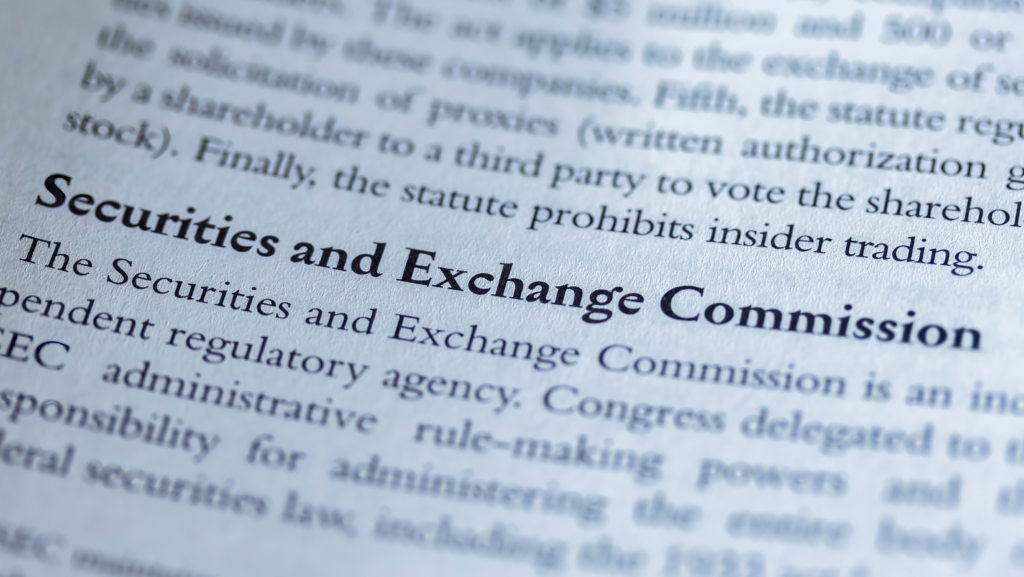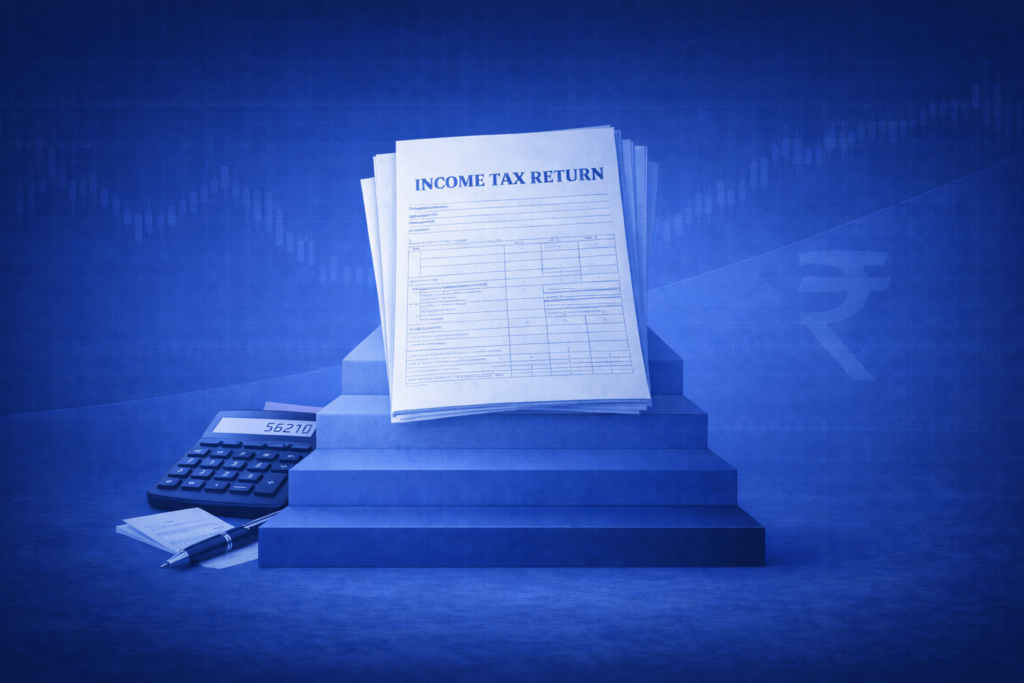Quick Summary:
– The SEC was established in 1934 to restore faith in financial markets following the crash of 1929.
– The SEC regulates stock exchanges, stockbrokers, and dealers responsible for the trading of securities to guarantee that the markets are fair and transparent.
– The SEC enforces the Securities laws through civil actions and administrative processes, occasionally working with the DOJ on criminal cases.
– The SEC requires companies to disclose financial information in a fair and truthful, and timely manner to protect investors from fraud by providing them with material information for decision making.
– The SEC created EDGAR (Electronic Data Gathering, Analysis, and Retrieval) to give investors access to important financial reports and filings by companies.
What is the SEC?
The Securities and Exchange Commission (SEC) was established in 1934 after the 1929 stock market crash to restore trust in the U.S. financial markets. Its primary role is to enforce securities laws, ensure companies provide accurate information, and prevented to protect investors.
By regulating stock exchanges, brokers, and dealers, the SEC ensures that markets remain fair and transparent. This helps maintain confidence in the integrity of financial markets, which is crucial for individual investors and businesses looking to raise capital.
SEC’s Key Responsibilities
The SEC plays a vital role in maintaining fair and transparent markets while protecting investors. It accomplishes this through a variety of key responsibilities, such as:
- Regulating securities exchanges: Ensures that stock markets operate fairly and efficiently.
- Overseeing brokers and dealers: Monitors professionals to ensure they act in the best interest of investors.
- Enforcing transparency in financial reporting: Requires publicly traded companies to disclose accurate financial information regularly.
- Protecting investors from fraud: Investigate and prosecute fraudulent activities that can harm the financial market.
- Ensuring compliance with securities laws: Keeps market participants accountable by enforcing federal laws.
How the SEC Enforces Securities Laws
The SEC enforces securities laws through two primary methods: civil action and administrative proceedings.
- Civil cases filed in federal courts seek remedies like fines, injunctions (court orders to stop illegal activities), and disgorgement (return of illegal profits).
- Administrative proceedings are internal hearings where the SEC can impose bans or fines on offenders.
In more severe cases, the SEC works with agencies like the Department of Justice (DOJ) to pursue criminal charges. This collaborative approach helps ensure wrongdoers face the consequences, including imprisonment and further penalties, thus maintaining market integrity and deterring future violations.
How the SEC Protects Investors
The SEC safeguards investors by ensuring they have access to truthful, transparent information about the securities they invest in and the firms they trust. By requiring companies to disclose financial details and monitoring market practices, the SEC fosters a fair trading environment that protects you from fraudulent or deceptive behaviour.
Investor Protection Initiatives
The SEC mandates that companies provide regular financial disclosures so that they can make informed investment decisions. It also ensures that brokers and financial advisors adhere to fair practices, meaning they must act in your best interests and provide honest advice, giving you confidence in your financial transactions.
Regulating Financial Markets
The SEC regulates major securities exchanges like the NYSE and NASDAQ to ensure markets function smoothly. Its regulations prevent market manipulation and ensure that trades are executed fairly, creating an environment where everyone plays by the same rules, ultimately protecting you from unfair practices.
Preventing Securities Fraud
To combat securities fraud, the SEC actively monitors trading activities for signs of illegal behaviour, such as insider trading (using non-public information for financial gain). By prosecuting fraud and holding wrongdoers accountable, the SEC ensures you can invest with trust, knowing the markets are well-guarded against deceptive actions.
The Role of the SEC in the U.S. Financial Market
By enforcing securities laws and overseeing market activities, the SEC ensures that the financial system operates smoothly and transparently, which helps protect investors and supports economic growth. Its key roles include:
Monitoring Public Companies
To ensure transparency, the SEC requires publicly traded companies to file quarterly and annual financial reports, such as the 10-K (annual) and 10-Q (quarterly report). These reports provide detailed financial information about the company’s performance, helping you make informed investment decisions and keeping the market transparent and accountable.
Overseeing Broker-Dealers
The SEC regulates broker-dealers, ensuring they follow ethical trading practices and act in their clients’ best interests. By enforcing strict guidelines and monitoring their activities, the SEC helps prevent conflicts of interest. It ensures that brokers provide fair and honest advice, protecting you from unethical practices in financial transactions.
Why the SEC is Important for Global Investors
The SEC’s global reach ensures that international companies meet U.S. standards, maintaining market integrity and protecting all investors. Let’s explore this in more detail.
SEC’s Global Reach
The SEC’s oversight extends to foreign companies listed on U.S. exchanges, requiring them to adhere to U.S. securities laws. This includes:
- Compliance with disclosure requirements: Foreign companies must provide the same level of financial transparency as domestic firms.
- Adherence to trading rules: They must follow regulations that prevent market manipulation and ensure fair trading practices.
Impact on Foreign Investors
Foreign investors benefit significantly from the SEC’s stringent regulations. The SEC’s enforcement of transparency and fair trading conditions provides:
- Confidence in market integrity: Knowing that U.S. exchanges are regulated helps foreign investors feel secure in their investments.
- Equal treatment: The same rules apply to U.S. and foreign investors, ensuring a fair and competitive market environment.
How to Access SEC Filings and Reports
The SEC provides a centralised platform on which you can find detailed financial disclosures from publicly traded companies. This ensures transparency and aids in investment research.
To access these documents, use the SEC’s EDGAR (Electronic Data Gathering, Analysis, and Retrieval) system. This online tool allows you to search for and view filings such as annual reports (10-K), quarterly reports (10-Q), and other important documents.
Here’s how you can use EDGAR effectively:
- Visit the EDGAR website: Go to the SEC’s EDGAR database at www.sec.gov/edgar.
- Search for filings: Enter the company name or ticker symbol in the search bar to find specific documents.
- Review documents: Access filings and reports for detailed financial information, management discussions, and other disclosures.
Understanding Financial Disclosures
The SEC requires companies to provide comprehensive reports—financial disclosures—ensuring that they have access to accurate and relevant information. These include:
- Annual Reports (10-K): Provide a detailed overview of a company’s financial performance over the past year, including audited financial statements, management analysis, and business activities.
- Quarterly Reports (10-Q): Offer updates on a company’s financial performance for the most recent quarter, including financial statements and recent developments.
- Current Reports (8-K): Disclose significant events or changes that may impact the company’s financial position or operations.
The Bottom Line
The SEC is important in safeguarding investors and ensuring that U.S. financial markets operate transparently and fairly. By enforcing regulations, the SEC helps maintain trust in the market, allowing investors to make informed decisions. With Appreciate, the best trading app you can confidently access U.S. stocks, knowing you have the transparency and tools to make sound investment choices.
Securities and Exchange Commission (SEC) FAQs
What is the SEC, and why was it created?
The SEC (Securities and Exchange Commission) is a U.S. government agency established in 1934 to regulate and oversee the securities markets. It was created to restore investor confidence after the 1929 stock market crash by enforcing laws to protect the public from fraud.
How does the SEC protect investors?
The SEC protects investors by ensuring fair and transparent practices in the securities markets. It enforces laws that require companies to provide accurate and timely information, allowing investors to make informed decisions.
What are the SEC’s key responsibilities?
The SEC enforces federal securities laws, regulates the securities industry, and oversees stock exchanges. It also monitors corporate takeovers and requires companies to disclose significant financial information to the public.
How does the SEC enforce securities laws?
The SEC enforces securities laws through investigations, litigation, and violation penalties. It can bring civil enforcement actions against individuals or companies that engage in illegal practices like fraud or insider trading.
What is securities fraud, and how does the SEC prevent it?
Securities fraud involves deceptive practices in the stock or commodities markets that mislead investors. The SEC prevents it by investigating suspicious activity, imposing penalties, and mandating that companies disclose truthful financial information.
How can investors access SEC filings and reports?
Investors can access SEC filings and reports through the SEC’s online database, EDGAR. These documents include corporate earnings reports, insider trading disclosures, and other financial information necessary for investment decisions.
What is EDGAR, and how do I use it?
EDGAR (Electronic Data Gathering, Analysis, and Retrieval) is the SEC’s system for submitting and accessing public company filings. Investors can use it by visiting the SEC website to search for and view filings by company name or ticker symbol.
What is insider trading, and how does the SEC prosecute it?
Insider trading occurs when someone trades securities based on non-public, material information. The SEC prosecutes insider trading by conducting investigations, bringing lawsuits, and working with the Department of Justice for criminal prosecution when necessary.
How does the SEC regulate broker-dealers?
The SEC regulates broker-dealers to ensure they act in the best interests of their clients and follow fair trading practices. It requires them to register, disclose critical information, and comply with financial responsibility rules.
What does the SEC do for global investors?
The SEC cooperates with international regulators to maintain fair and efficient markets for global investors. It also enforces rules that apply to foreign companies listed on U.S. exchanges, ensuring they meet the same transparency and reporting standards.
Disclaimer: Investments in securities markets are subject to market risks. Read all the related documents carefully before investing. The securities quoted are exemplary and are not recommendatory.























